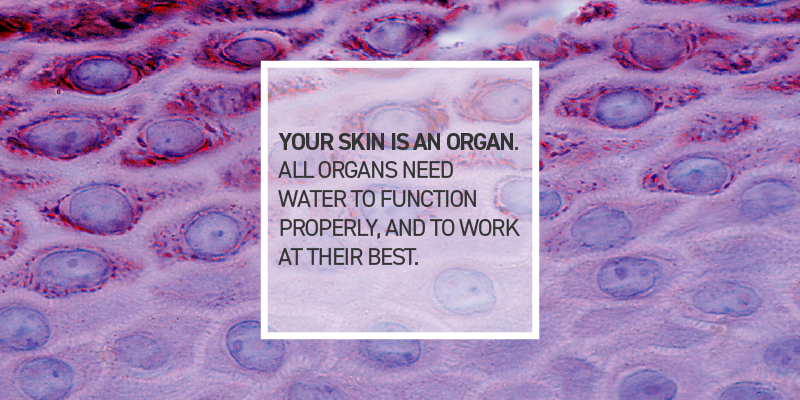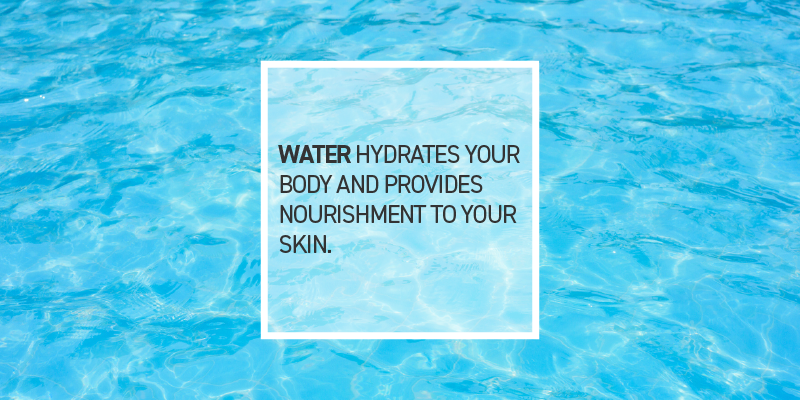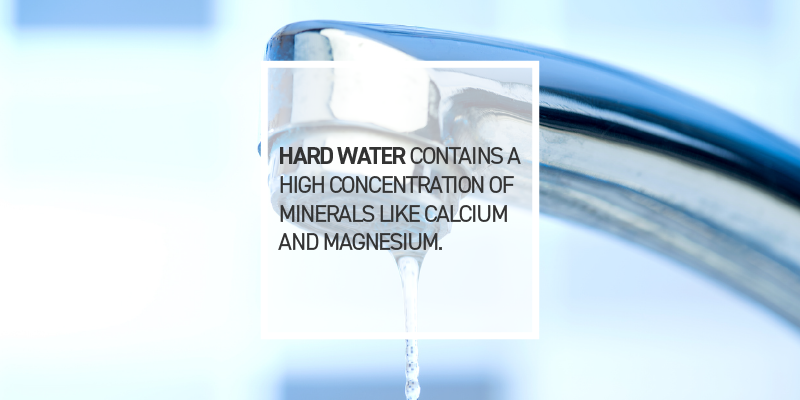Skincare Tips from MDSUN Skin Care®

There’s a reason why every single doctor you talk to will voice the importance of making sure you drink plenty of water every day. Water is essential for just about every single function that takes place inside the human body. Do you really think your skin is any different?
Water is just as important to the health of your skin as it is to everything else. Not only is water essential for your skin cells to function properly (from the inside), but how you use water to take care of your skin from the outside makes a difference, too!
Why Does Skin Need Water?

Your skin is an organ. Actually, it’s the largest organ of your body! It’s made up of cells, which are made up of water. All organs need water to function properly, and to work at their best.
Water is lost from the body in large quantities every day when you urinate, defecate, breath, and through evaporation by way of transepidermal water loss (TEWL). If we don’t do a good job replacing the water that’s lost, your skin will become dehydrated, leaving it dry, tight, and flaky. It won’t function to protect you as it should, and it could lead to wrinkles.
Being even slightly dehydrated will cause your whole body to function less optimally. A little dehydration will take a huge toll on your skin, making it look dull, flaky, saggy, and loose. Not only will staying well-hydrated keep your skin looking lush and supple but drinking plenty of water will help to flush toxins out of your body.
What Does Water Do For Skin?

Water hydrates your body and provides nourishment to your skin. Skin that is well-hydrated appears firmer and tighter. It helps your body flush all those toxins out of your system, so drink a large glass when you first wake up. It sounds counterintuitive, but you should also drink eight ounces before you go to bed at night to kick-start that process while you sleep.
Even celebrities know it. Ellen Pompeo, Jennifer Aniston, and Gabrielle Union all tout water’s ability to keep their skin glowing, healthy, and camera-ready.
Flushes out toxins
If your body doesn’t have enough water, toxins can’t be properly flushed out, resulting in undesirable effects like acne, washed-out coloring, or even rashes and reactions.
Replenishes skin tissue
Water is essential to maintain optimum skin moisture and deliver essential nutrients to the skin cells. It can help to delay the appearance of signs of aging like wrinkles and fine lines. That’s because when skin cells are dehydrated, they become withered and limp, which can cause wrinkles. Hydrated cells are swollen and soft. Without adequate water intake, skin appears duller, and wrinkles and pores more prominent. That’s because water plumps up the skin, causing wrinkles and pores to essentially get filled in.
Actually reduces puffiness
When your body is dehydrated, it desperately tries to hold onto whatever water it has, which can make your skin look puffy and swollen. When your body is hydrated, your kidneys will do their job to regulate and excrete excess fluid, helping to balance your body.
Combats skin disorders like psoriasis, wrinkles, and eczema
These conditions are very drying and can lead to itchy, uncomfortable skin because they are the result of a damaged barrier function. Drinking plenty of water can help to balance this out.
Is the Water You Wash With Important Too?

Taking care of your skin from the outside is as simple as wash, rinse, moisturize, repeat. Right?
There’s actually a lot more to water than just that. What you do with it, and its quality and content can make a big difference.
Chlorine
It’s a chemical additive used to treat tap water to make it safe for drinking, but it’s actually a toxic and abrasive substance that is extremely irritating to human skin and lungs. Even a small amount can be harmful over time. When you shower, the heat opens your pores, letting your skin absorb large amounts of chlorine from the water, which oxidizes the skin, releasing oxygen and hydrogen chloride. These gas compounds cause tissue damage that can show up as premature signs of aging like fine lines and wrinkles, or even a rash because the chlorine strips the skin of its natural oils, causing it to crack.
Temperature
Hot water can have a negative impact on your skin, inflaming it and causing redness, itching, and even peeling. It can disrupt the natural balance of moisture. Lukewarm is actually optimal for skin health.
Hard Water
Hard water contains a high concentration of minerals like calcium and magnesium. It’s safe to drink but can contribute to skin problems. These minerals can dry on your skin. Minerals drying on your skin can clog pores and cause flaking and itching. It can also react with soaps to form salts that can remain on your skin. Drying the skin out can lead to secondary conditions like blemishes and acne.
Hydrating your skin from the inside out isn’t an excuse to skip topical moisturizers, since the water you drink may not affect your outermost layers of skin. The best combination of care is to hydrate well from the inside and nourish your skin with quality hydrating ingredients like the hyaluronic acid found in MDSUN Super Hydration B Serum from the outside.
Skin Care Tips From MDSUN Skin Care®
Please Visit Our Official Website - MDSUN Skin Care




Comments
Post a Comment